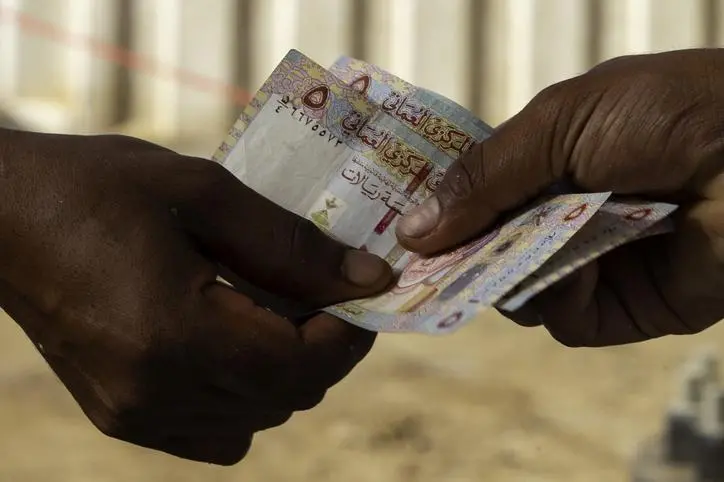PHOTO
DUBAI- Oman saw bumper demand in its first dollar-denominated sukuk sale since 2018 on Tuesday, as the rise in oil prices over the last year and a fiscal consolidation plan helped investors shelve worries about a break-neck rise in debt levels.
The small Gulf state's $1.75 billion nine-year sukuk drew over $11.5 billion in demand.
They were up about one cent on the dollar in the so-called grey market, market sources said. An S&P Global model called the Market Derived Signal Score shows that for the first time in more than two years, credit default swaps were not pricing a credit rating downgrade for Oman.
"They have set fairly cautious oil price assumptions, at $45 a barrel for this year, and $50 thereafter. But they have a plan to balance the budget at $50 by 2025," said Timothy Ash at BlueBay Asset Management, adding he now sees Oman as an improving credit story.
He said he expected its budget to outperform given higher oil prices, with Brent crude at over $72 on Wednesday.
"Recent demonstrations have underlined that reforms are not easy, but we see real commitment to reform, but also to improve transparency, which is really encouraging from an investor perspective," Ash said.
Last month Oman saw hundreds of Omani men protest demanding jobs, handing its new ruler Sheikh Sultan his biggest challenge since taking the throne last year following the death of Sultan Qaboos - in power for five decades.
Morgan Stanley said on Wednesday it prefers Oman, among the best performers on the Emerging Markets Bond Index, over Bahrain - the only other "junk" rated Gulf country.
Oman, a relatively small oil producer, is more sensitive than its hydrocarbon-rich Gulf neighbours to oil price swings, meaning it was hit especially hard by 2020's historic price crash and the COVID-19 pandemic. Its debt as share of annual economic output, or GDP, soared to nearly 80% last year having been little more than 5% in 2015.
"While we have tempered our optimism with the rally, we maintain a positive bias and think that it's too early to cut exposure as fiscal consolidation should remain on track," Morgan Stanley said in a research note.
Oman faced what bankers called lacklustre demand when it tapped the debt markets last year, but the consolidation plan and oil price recovery helped Oman become the first Gulf sovereign to issue bonds in January, raising $3.25 billion with conventional bonds sold out of a $15 billion orderbook.
"With the latest issue Oman has refinanced bonds expiring in 2021 and the current public deficit... allowing the government to concentrate on the budget deficit consolidation," said Raffaele Bertoni, head of debt capital markets at Gulf Investment Corporation.
(Reporting by Yousef Saba in Dubai; Additional reporting by Marc Jones in London; Editing by Toby Chopra) ((Yousef.Saba@thomsonreuters.com; +971562166204; https://twitter.com/YousefSaba))





















